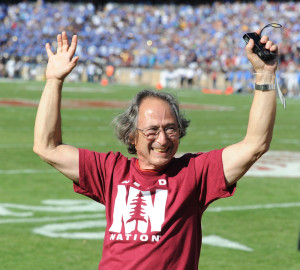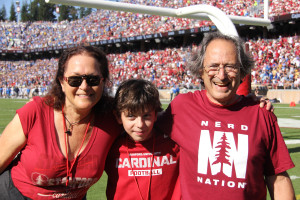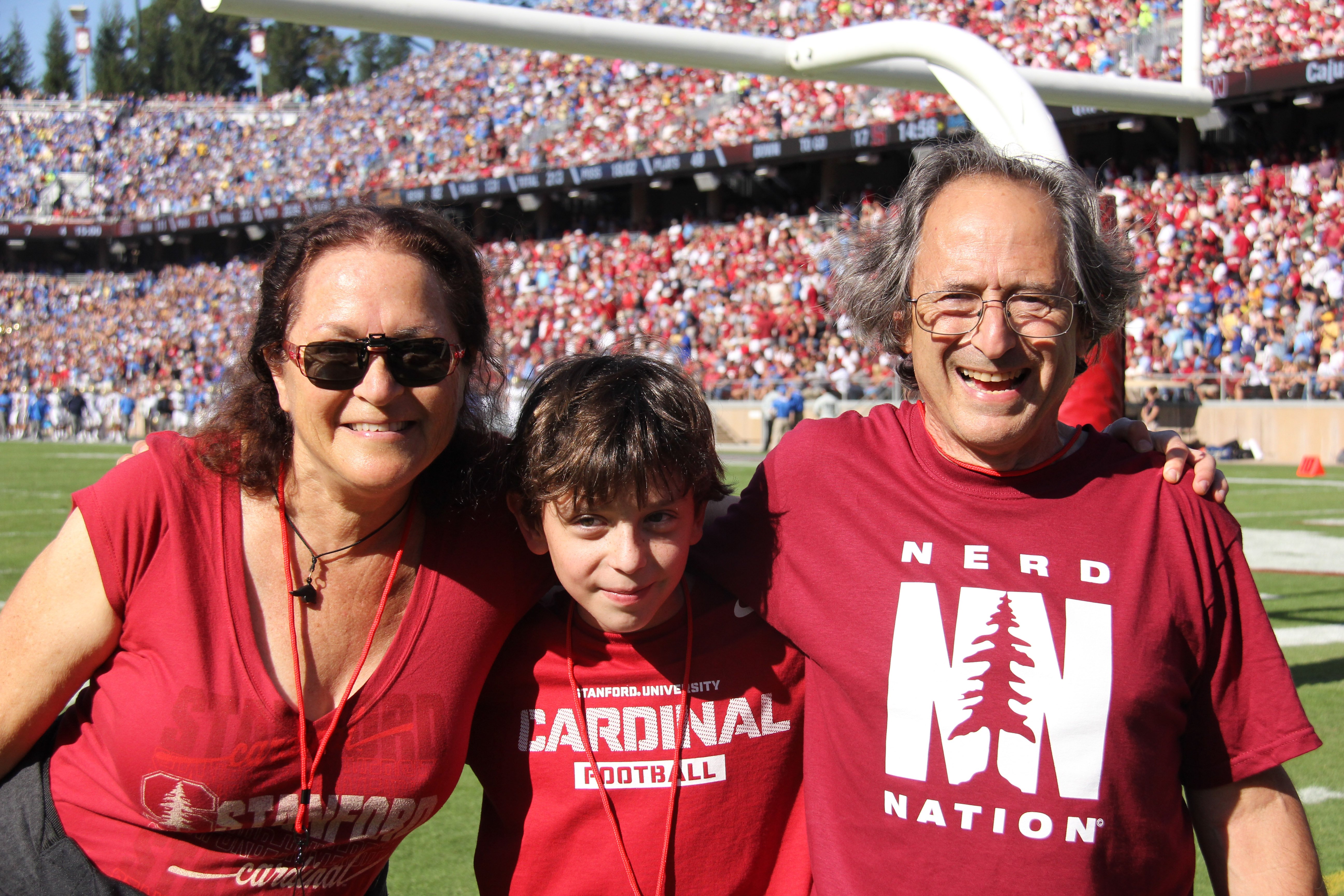According to Michael Levitt, the last prize he won was in 1986 — the last prize, that is, before he won the 2013 Nobel Prize in Chemistry “for the development of multiscale models for complex chemical systems.”

“My work is about developing models that make it possible to do simulations of the very large molecules that are responsible for most brain processes,” Levitt explained. “You can do calculations if you have a good model, which enables you to see how the shape would change with time, basically letting you understand the fundamental building blocks of life.”
Although Levitt is humble about his award, to his colleagues, the award was no surprise.
“Michael is a great scientist,” said Roger Kornberg Ph.D ‘72, professor of structural biology at the Stanford School of Medicine and recipient of the 2006 Nobel Prize in Chemistry. “He won the prize for founding the field of computational biology and leading it up to the present day. He is also a wonderful person — the prize could not go to a nicer guy.”
Balancing family and work
Levitt’s Nobel Prize, which he shared with two other researchers, was a culmination of years of dedication to science.
“From a very early age he showed an advanced ability to learn and understand mathematics and an interest in investigating and experimenting,” stated Levitt’s mother, Gertrude, in an email to The Daily. “He has excellent manual dexterity and could visualize and build models out of ‘scrap’ he found. Science, investigation and experimentation were just part of his daily activities.”
Even though she lives in London, Levitt remains close to his mother, who is now 98 years old.
“Michael phoned me as soon as he heard that he had been jointly awarded the Nobel Prize,” Gertrude Levitt wrote. “I was, and am, very delighted but not surprised. More surprised that it had taken so long for his work to be recognized!”

This dedication, however, can at times be all-consuming, and Michael Levitt credited his wife of 45 years, Rina, for her support.
“Balancing family and work is a difficult thing,” he said. “I think my family didn’t get as much as they deserved and Rina sort of kept everyone together in a very positive way — there’s no doubt that none of this would’ve been possible without her.”
Though his entire family moved from Israel to Stanford with him in 1987, two of Levitt’s three sons have since returned to Israel with their children. Rina, who is an Israeli native, also spends large periods of time in her home country. As a result, Levitt has had to learn how to balance keeping in touch with family with making progress in research.
“One thing that I do is generally work at home,” he said. “The good thing about this is that I’m actually there if someone needs [me]. It’s actually quite nice to be able to do my work before everyone even gets up.”
Personal connection with students
In addition to his research, Levitt also serves as a pre-major advisor (PMA) to freshmen students.
“Initially, I was as confused as the incoming freshmen were,” he said, recalling his first experience as a pre-major advisor two years ago. “But we sort of got through the first quarter together. And when they all came back after the winter break, they were like changed people, suddenly confident and knowing what they wanted to do. It was a great pleasure, so I agreed to take on another six this year.”
Working with students and post-doctoral students is enjoyable to Levitt because of the parallels between his students and family. Levitt described the 30- to 40-year-old post-doctorates in his lab as his children’s generation, and his pre-major advisees as his grandchildren’s generation.
As a result, Levitt’s interest in his students extends beyond academics to their personal wellbeing. Peter Ruhm ‘17, one of Levitt’s advisees, said that when he met with Levitt, they talked more about how to be happy at Stanford than about specific academic classes and requirements.
“I get the feeling that he very much values a balanced life,” Ruhm said. “He dresses very casually and hates dressing up. I barely recognized him in a formal picture announcing the award.”
Life since the prize
Winning the Nobel Prize has added complexities to Levitt’s balanced life. He said he answered almost 1500 emails in a day and has received 60 invitations to visit places. Levitt and his wife also had to push back a hiking trip to Patagonia that was originally planned for December.
“I somehow feel like I have gone to a banquet, and they keep bringing you one course after another,” he said. “After a while, you wish you could just go back to sardines and toast. My main thing is to just try and get through the next couple of months.”
Levitt also said that he hasn’t gotten back to writing computer programs since the award. While he said the attention can be exhausting, he has been enjoying the perks.
“I had lunch with [Stanford football coach] David Shaw [‘94] on Friday at Jimmy V’s,” Levitt said. “It was nice because he was super recognized and no one even paid any attention to me, so that was wonderful.”
Levitt followed up that event by attending the Homecoming football game against UCLA the next day — the first football game he’s ever seen, either live or on television. Before the fourth quarter, he and his family were invited down to the field to be recognized.
“It was a very exciting game,” he said. “I’m sure I’m still very ignorant, but you could certainly feel the excitement. When we went onto the field — me and Rina and our oldest grandson, Barak — the whole stadium was screaming and cheering, ‘Nobel Prize! Nobel Prize!’”
Contact Kimberly Tan at kwtan ‘at’ stanford.edu.
